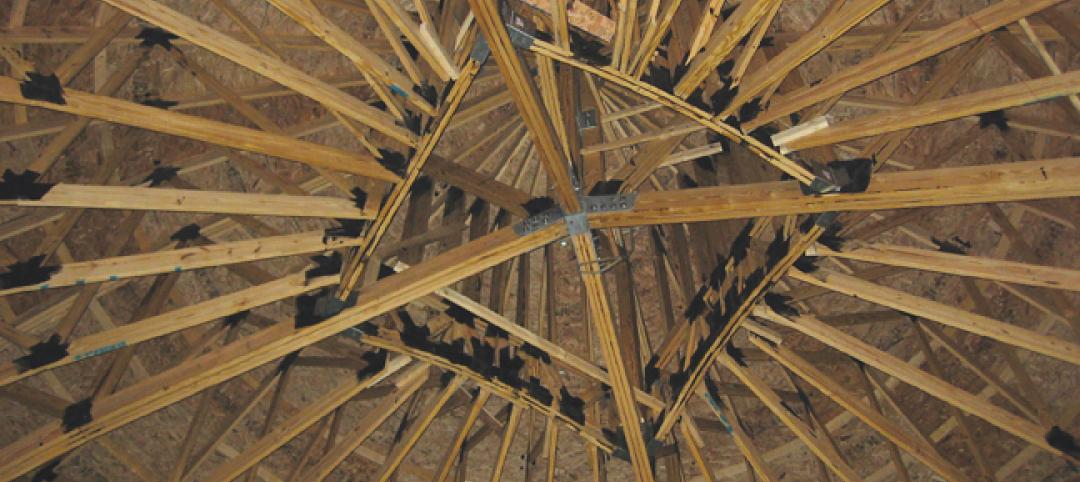The enthusiasm that surged through the U.S. engineering industry following the election of Donald Trump has moderated, according the latest survey of engineering firm leaders by the American Council of Engineering Companies (ACEC).
The first quarter 2017 (Q1/17) of ACEC’s Engineering Business Index (EBI) dipped slightly (0.5 points) to 66.0. The decline is minimal and the score remains decidedly positive, but is in contrast to the 4th quarter 2016 EBI in which, fueled by Trump’s promises of lower taxes, infrastructure investment, and regulatory reform, the score jumped 5.1 points—the largest quarterly increase in the survey’s three-year history.
Now however, with the Administration slow to implement any of these polices, engineering firm leader confidence seems to have plateaued.
The EBI is a leading indicator of America’s economic health based on the business performance and projections of U.S. engineering firms that develop the nation’s transportation, water, energy and industrial infrastructure. The EBI is a diffusion index. The index mean is 50, with scores above 50 indicating business expansion, and scores below 50 indicating contraction. The Q1/17 survey was conducted March 23 to April 24 of 378 U.S. engineering firm leaders.
When comparing today’s market conditions to six months ago, the EBI score climbed 3.2 point to 66.8; while current backlog compared to six months ago was up a strong 5.1 points to 67.1. Additionally, short-term (six-month) expectations for profitability increased 3.5 points to 72.5 points.
Other EBI results however, clearly reflect engineering leader marketplace ambiguity. Market expectations for one year from today fell 2.6 points to 69.5; profitability expectations for the same period were flat (72.9); but looking out three years, expectations fell 2.4 points, and anticipated backlog fell 1.1 points to 70.4.
Concerns about long-term marketplace health resulted in significant declines in nine of the 12 primary public and private sector engineering markets.
For more information about the Q1/17 EBI, go to www.acec.org.
Related Stories
| Aug 24, 2011
Deadline Extended: 2012 "Best AEC Firms to Work For” Awards
We’re looking for firms that create truly positive workplaces for their AEC professionals and support staff. In other words, this awards program will recognize those AEC firms that nurture and develop their most valuable asset—their people.
| Jul 21, 2011
Bringing BIM to the field
A new tablet device for construction professionals puts 3D data at the fingertips of project managers and construction supervisors.
| May 25, 2011
Register today for BD+C’s June 8th webinar on restoration and reconstruction projects
Based on new and award-winning building projects, this webinar presents our “expert faculty” to examine the key issues affecting project owners, designers and contractors in case studies ranging from gut renovations and adaptive reuses to restorations and retrofits.
| May 25, 2011
Developers push Manhattan office construction
Manhattan developers are planning the city's biggest decade of office construction since the 1980s, betting on rising demand for modern space even with tenants unsigned and the availability of financing more limited. More than 25 million sf of projects are under construction or may be built in the next nine years.
| May 25, 2011
Olympic site spurs green building movement in UK
London's environmentally friendly 2012 Olympic venues are fuelling a green building movement in Britain.
| May 19, 2011
BD+C’s "40 Under 40" winners for 2011
The 40 individuals profiled here are some of the brightest stars in the AEC universe—and they’re under the age of 40. These young architects, engineers, contractors, designers, and developers stood out among a group of 164 outstanding entrants in our sixth annual “40 Under 40” competition.
| May 18, 2011
8 Tips for Designing Wood Trusses
Successful metal-plate-connected wood truss projects require careful attention to detail from Building Team members.
| May 18, 2011
Major Trends in University Residence Halls
They’re not ‘dorms’ anymore. Today’s collegiate housing facilities are lively, state-of-the-art, and green—and a growing sector for Building Teams to explore.
| May 18, 2011
Former Bronx railyard redeveloped as shared education campus
Four schools find strength in numbers at the new 2,310-student Mott Haven Campus in New York City. The schools—three high schools and a K-4 elementary school—coexist on the 6.5-acre South Bronx campus, which was once a railyard.

















